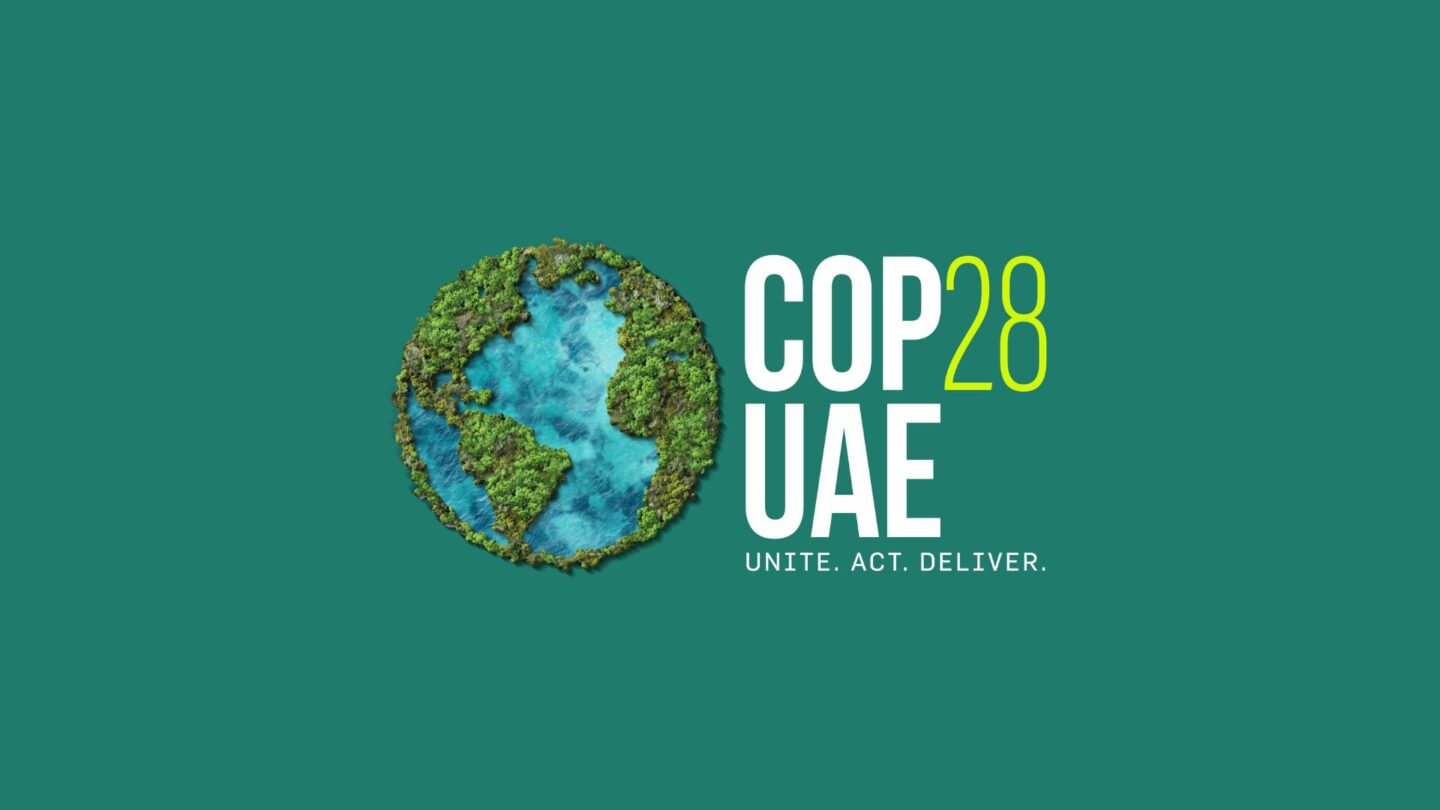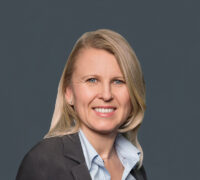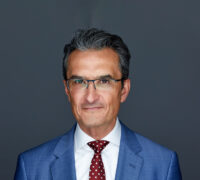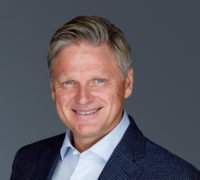
Don’t believe the hype: Making good use of a blackout
The Spanish blackout of April 2025 is an opportunity to strengthen electricity systems that have higher shares of renewables and should not be used as an excuse to slow down the energy...

by Natalia Olynec, Arturo Bris, Salvatore Cantale, Knut Haanaes, Julia Binder Published December 14, 2023 in Sustainability • 6 min read
For business leaders, the implications of the global stocktake announced yesterday, as COP28 drew to a close in Dubai, are profound.
“Governments must now establish conditions conducive to meeting the goals outlined. This will create a level playing field for companies genuinely committed to decarbonization,” says Julia Binder, Professor of Sustainable Innovation and Business Transformation at IMD.
The global stocktake contains every element that was under negotiation and is intended to be used by countries in their efforts to develop the stronger climate action plans due by 2025.
It calls on parties to take actions towards achieving, at a global scale, a tripling of renewable energy capacity and doubling of energy efficiency improvements by 2030, with the overarching aim of keeping the global temperature limit of 1.5°C within reach.
UN Climate Change Executive Secretary Simon Stiell said in his closing speech, “Now all governments and businesses need to turn these pledges into real-economy outcomes, without delay.”
“While the agreement may not reach the ambitious goals some, among them leading business players, had hoped for, it undeniably signals a collective call to action for businesses to intensify their efforts toward achieving net-zero targets and implementing robust measures to cut carbon emissions,” Professor Binder adds.

“It’s crucial for businesses to seize this opportunity, leveraging the agreement as a catalyst for accelerated and bold actions in the pursuit of a sustainable and resilient future.”- Julia Binder, IMD Professor of Sustainable Innovation and Business Transformation
Without clear pathways to achieving net-zero emissions, governance frameworks, or proper assessments of their current emission levels, companies are at risk of negative market reactions when investors realize that the goals they have stated are unachievable. They may also incur higher energy costs, higher costs of capital, and market share losses to more climate-aware competitors.
Regulation is key to open the way for them to innovate with the new business models required.
Natalia Olynec, IMD’s Chief Sustainability Officer, says she was really inspired by the amount of non-traditional partnerships on display at COP28. “More emphasis is clearly being put on connecting partners throughout supply chains and ecosystems, and that’s the only way we can achieve change,” she says.
“The convening power of COP28 has been extraordinary,” she adds. “It’s easy to be cynical and many people have justifiably been concerned about the oil lobby, greenwashing and virtue signalling. But I’m convinced that we are at an inflection point where business is now required to address the topic of climate.”
Thematic days at COP28 focussed on gender and education, for instance – which, Olynec says, was an acknowledgement that climate is interconnected with many different issues and especially with social impact. The concept of a just transition was front and center, and she felt that the need to engage women and minorities seemed more deliberate than ever before.
“What also struck me at this COP was the overwhelming involvement of business, at an event that is traditionally focussed on governments negotiating. Business is key to the success of the transition, so I’m encouraged about how many businesses are now at the table and see this as an opportunity for innovation, new business models, engaging employees, attracting and retaining talent. Everyone is involved in this agenda for different reasons, of course.”
The launch at the conference of the Business Schools for Climate Leadership (BS4CL) Middle East cluster of business schools – part of the wider BS4CL ecosystem, a strategic alliance that aims to drive climate action and sustainability – in a region characterized by unique challenges, demonstrated how organizations are collaborating to strengthen efforts. Corporate, government and academia form a potent combination when it comes to effecting change from the ground up.
Partnerships were also on display in the form of blended finance, bringing together public and private lenders to form one source of climate finance, which combines official development assistance with other private or public resources, in order to leverage additional funds from other actors while removing some risk for private finance.
Donors including the Bezos Earth Fund joined forces to launch the Allied Climate Partners investing platform at the conference, with an aim of generating $11 billion in investments in developing countries. The UAE is known for its commercially driven, innovative blended finance solutions.
“Climate finance is a great opportunity for the world; it is going to need fresh energy sources and to invest in developing economies for them,” says IMD Professor of Finance Arturo Bris. “But who is going to finance this? Certainly, governments can’t work by themselves to do so; they need private sector capital. But at the same time, the private sector will want its returns. One pressing issue as we move on from COP28 will be to continue looking into how to resolve climate finance issues without imposing the matter on taxpayers.”
SMEs featured heavily at this COP, with a focal point being where they are in their green transition.
“Often eclipsed by the big-ticket polluters (oil, gas etc), SMEs represent more than 90% of businesses and about 40% of greenhouse gas emissions (at least in Europe). They have been neglected for too long in their financial transition needs,” says IMD Professor of Finance Salvatore Cantale.
Climate finance is a great opportunity for the world; it is going to need fresh energy sources and to invest in developing economies for them- Arturo Bris, IMD Professor of Finance
“I was struck by the number of private and public financial institutions launching or proposing new and interesting green financing solutions, filling an important gap. As there will be no net zero without SMEs, these innovations lead me to believe that we are finally getting to a tipping point, meaning we can position SMEs in the place they deserve in the green transition.”
“As much as COP28 saw an agreement reached, the stock prices of the main oil companies such as Exxon BP, Shell, and Chevron remained basically unchanged. That is, this COP did not manage to change investors’ expectations of oil companies. That means: no news for oil companies, bad news for climate change!” says Professor Cantale.
Knut Haanaes, IMD Professor of Strategy and Lundin Chair Professor of Sustainability, insists that we should not, however, lose sight of how positive the Loss and Damage Fund was, and the fact that we have seen the first ever global stocktake, setting in motion the creation of factual climate baselines per country.
Perhaps acknowledging the inherent constraints that stem from finding unanimous approval from states and stakeholders that are fundamentally different and represent significantly different interests is progress in itself.
“It is imperative to recognize that this agreement represents the most feasible compromise attainable for this year’s COP,” emphasizes Professor Binder.

Chief Sustainability Officer at IMD
Natalia is the Chief Sustainability Officer at IMD. She designs and implements sustainability strategy, develops executive education programs and advisory, publishes research, builds cross-sector partnerships, and communicates IMD’s ambitions and progress. The Center for Sustainable and Inclusive Business, co-led by Olynec, aims to support leaders and companies to take steps towards a more sustainable and inclusive business world by harnessing IMD’s knowledge and expertise in this field and offering tools to help them deliver systemic, innovative, and impactful responses.

Professor of Finance at IMD
Arturo Bris is Douglas Geertz IMEDE 1988 Professor in Geopolitics and Business and Professor of Finance at IMD. Since January 2014, he has led the world-renowned IMD World Competitiveness Center. At IMD, Bris directs the Boards and Risks program and Blockchain and the Future of Finance program. He also previously directed the flagship Advanced Strategic Management program between 2009 and 2013.

Professor of Finance at IMD
Salvatore Cantale is Professor of Finance at IMD. His major research and consulting interests are in value creation, valuation, and the way in which corporations structure liabilities and choose financing options. Additionally, he is interested in the relation between finance and leadership, and in the leadership role of the finance function. He directs the Finance for Boards, Business Finance, and the Strategic Finance programs as well as the Driving Sustainability from the Boardroom program and the newly designed Bank Governance program.

Lundin Chair Professor of Sustainability at IMD
Knut Haanaes is a former Dean of the Global Leadership Institute at the World Economic Forum. He was previously a Senior Partner at the Boston Consulting Group and founded their first sustainability practice. At IMD he teaches in many of the key programs, including the MBA, and is Co-Director of the Leading Sustainable Business Transformation program (LSBT) and the Driving Sustainability from the Boardroom (DSB) program. His research interests are related to strategy, digital transformation, and sustainability.

Professor of Sustainable innovation and Business Transformation at IMD
Julia Binder, Professor of Sustainable Innovation and Business Transformation, is a renowned thought leader recognized on the 2022 Thinkers50 Radar list for her work at the intersection of sustainability and innovation. As Director of IMD’s Center for Sustainable and Inclusive Business, Binder is dedicated to leveraging IMD’s diverse expertise on sustainability topics to guide business leaders in discovering innovative solutions to contemporary challenges. At IMD, Binder serves as Program Director for Creating Value in the Circular Economy and teaches in key open programs including the Advanced Management Program (AMP), Transition to Business Leadership (TBL), TransformTech (TT), and Leading Sustainable Business Transformation (LSBT). She is involved in the school’s EMBA and MBA programs, and contributes to IMD’s custom programs, crafting transformative learning journeys for clients globally.

July 9, 2025 • by Cédric Philibert in Sustainability
The Spanish blackout of April 2025 is an opportunity to strengthen electricity systems that have higher shares of renewables and should not be used as an excuse to slow down the energy...

July 7, 2025 • by Julia Binder, Esther Salvi in Sustainability
Lindström found that expanding its business to Asia required overcoming cultural barriers as much as building new services and infrastructure while adapting itself to local needs. ...

June 16, 2025 • by Núria Ibáñez-García in Sustainability
Driving change in a system where progress can be slow and regulation is tight isn’t easy. But for Núria Ibáñez-García, sustainable transformation starts with steady influence, applied from within. ...

June 9, 2025 • by Julia Binder, Esther Salvi in Sustainability
Dr. Kiri Trier, the beauty giant’s regional sustainability chief, explains her drive to change customer habits and make cutting waste, refilling, and recycling part of their daily bathroom routine....
Explore first person business intelligence from top minds curated for a global executive audience